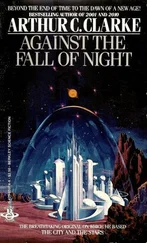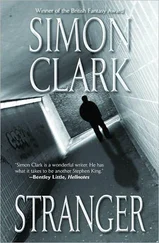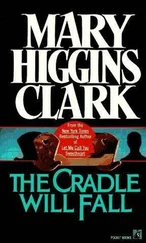‘Some people have been questioning why I have asked them to remove the glass casing from light bulbs. Well, here’s the reason.’ People formed a semicircle in front of the bench like students watching their lecturer perform an experiment.
Carswell smiled, enjoying the moment.
‘The light bulb makes light when an electric current is passed through a fine filament, causing it to glow white-hot. Reverend Hather, I take it you won’t be familiar with light bulbs since they won’t be invented for several more decades.’
Again the patronising tone, but Thomas merely gave a diplomatic nod.
Carswell continued, ‘Expressed simply, my idea is to remove the glass case from around the filament and insert the remainder of the bulb into the fuse end of the rocket with a small quantity of gunpowder. A cable connected to the bus’s battery via a switching arrangement on the bus itself runs out to the rocket. When the switch is pressed the electric current turns the filament incandescent, which in turn ignites the gunpowder, which in turn ignites the rocket propellant. A second later the rocket screeches from its firing tube to the target.’
There was an appreciative murmur from some parts of Carswell’s audience; already they were falling for the image of saviour-genius the man was projecting.
‘Now pay attention, please,’ Carswell said, waving his hand above the workbench. ‘Here is a battery. The wires are connected to one of the bulbs with the glass removed. I have placed the bulb into a small quantity of gunpowder in the metal dish. See what happens when I connect the wire to the battery terminal and send a charge of electricity down into the bulb’s filament.’
Carswell picked up the wire and brought the end into contact with the battery terminal.
People leaned forward to watch what happened in the bowl. The Reverend Thomas Hather shielded his eyes against the expected flash.
Someone put their hands over their ears.
Nothing happened.
Carswell brushed the bare end of the wire against the terminal. There was a clicking sound and Sam clearly saw the blue-white spark of the contact.
But no flash and no puff of smoke from the metal dish.
‘Let’s see, there must be some… ahm…’ Carswell lifted the bulb assembly from the bowl, blew it, checked that the wires were connected, then rested it on the small mound of gunpowder and brushed the wire against the battery contact again.
And again nothing happened.
Sam expected Carswell to make some excuse about a loose connection or a lack of charge in the battery, but suddenly he locked up as if every muscle in his body had gone into spasm. His face turned white, a sweaty dangerous-looking white; his eyes locked onto the dish of gunpowder with his light-bulb rocket trigger; for all the world he could have been a snake, its eyes transfixing a victim, ready to strike.
The silence became uncomfortable.
At last Jud cleared his throat. ‘Perhaps one of the wires inside the casing has cracked?’
Carswell didn’t appear to hear. The only thing that existed in his universe right now was the light bulb that had treacherously betrayed his great scheme. Veins stood out in his temples and neck, a tracery of purple cables beneath his skin that seemed to pulsate with pure boiling rage.
Without a word he marched out of the doorway into the yard.
A moment later someone said, ‘Well, they do say there’s a thin line between genius and madness.’
That was enough to break the tension. A couple of women even laughed, but it was high and scared-sounding. People drifted away to sit around the barn. No-one resumed their work.
‘What now?’ Jud asked. ‘Carry on without him?’
‘Or forget the whole stupid thing,’ a man said. ‘We could still just get out of town until all this is over.’
‘Through those blocked roads?’
‘Why not?’
‘One reason why not is that we’d have to leave the old, the very young and the sick. behind. They’d never make it through the hills on foot. It’s like the Arctic out there.’
‘Well, what’s the alternative?’
‘There’s only one course of action,’ Thomas said thoughtfully, while gazing at the open door through which Carswell had exited. ‘Someone has to go to Mr Carswell, eat humble pie, and persuade him to come back so he can complete what he started.’
Sam looked at Thomas. ‘You think Carswell’s plan will work?’
A grey-haired man laughed. ‘Did you see the man? He’s off his head.’
Thomas said, ‘There’s a saying: Come the hour, come the man .’
‘You have to admit he’s a bit… brittle.’
‘You are right, of course.’ Thomas returned to the workbench and experimentally flexed one of the cables that connected the battery terminal with Carswell’s impromptu rocket triggers. ‘But although my name might be Thomas, I am no doubter. I believe that, when Man is in crisis, the Lord God does send help. Even if at times it is in a perplexing form.’ He picked up the loose cable and looked at it thoughtfully for a moment. ‘And I do believe that, however difficult and challenging Mr Carswell’s personality might be, he is heaven-sent.’
‘Heaven-sent?’
Thomas lightly brushed the frayed end of the wire against the terminal. Instantly there was a loud pffft . With a brilliant flash, a perfect smoke ring rose from the bowl towards the ceiling of the barn.
‘You were right, Jud,’ Thomas said. ‘The wire was cracked in the casing, after all.’
Jud gave a wry smile. ‘Come on, Sam, it’s time we cultivated an appetite for humble pie.’
ONE
Wednesday morning, 22 ndDecember 1865 .
Jud and Sam worked on the king post. This was the vertical pole that protruded through the centre of the bus’s roof. Rigging cables ran down to the stumpy ‘wings’ at either side of the bus that carried the rocket-launcher tubes. Each ‘wing’ was probably around ten feet long, four feet wide and consisted of wooden spars held together with glue and nails. Lashed by cord to the wing spars were the rocket-launcher tubes themselves. They looked like lengths of drainpipe around five feet long, and they pointed forward in line with the body of the bus. If anything, the criss-cross effect of spars resembled what lay beneath the canvas skin of an old-time aeroplane. A skeleton of wood that, to Jud, looked far too fragile.
Sam and Jud slithered across the slippery roof of the bus, tying rigging cables to the king post.
‘Get them good and tight,’ Carswell called from his platform in the hayloft. ‘The rocket tubes must be in alignment when they’re fired.’
Jud gave a kind of salute and smiled.
Then, under his breath, he said, ‘If I keep sweet-talking him much longer it’s going to send me barking mad.’
‘Just keep smiling as you work; it was a miracle we got him back here again… Jud, catch hold of the rope. It’s slipping from the post. Damn.’
The line already tied to the tip of the wing assembly slipped off the bus’s roof and onto the barn floor.
‘I’ll get it,’ Jud sighed. ‘I need a sharper knife to trim these lines anyway.’
Sam watched the others at work for a moment.
His description of the activity he saw would have been that it was a kind of symphony of endeavour. Every one of those accidental time travellers was working. Sometimes there were quieter periods when there was hardly any noise as people attended to small-scale detailed jobs: plaiting string, threading wiring through the wings, fixing small screws, or just talking in whispers. Then, as if they were in some kind of mystical harmony with each other, they turned to work of a larger scale: hammering metal plates, furiously sawing timber while workers whistled and people shouted for more tools. The sounds would rise to a crescendo, becoming the fortissimo movement of that symphony of endeavour. Then the whole barn would be a swarm of movement as a hundred different sounds rose to a near-deafening, teeth-vibrating climax.
Читать дальше












